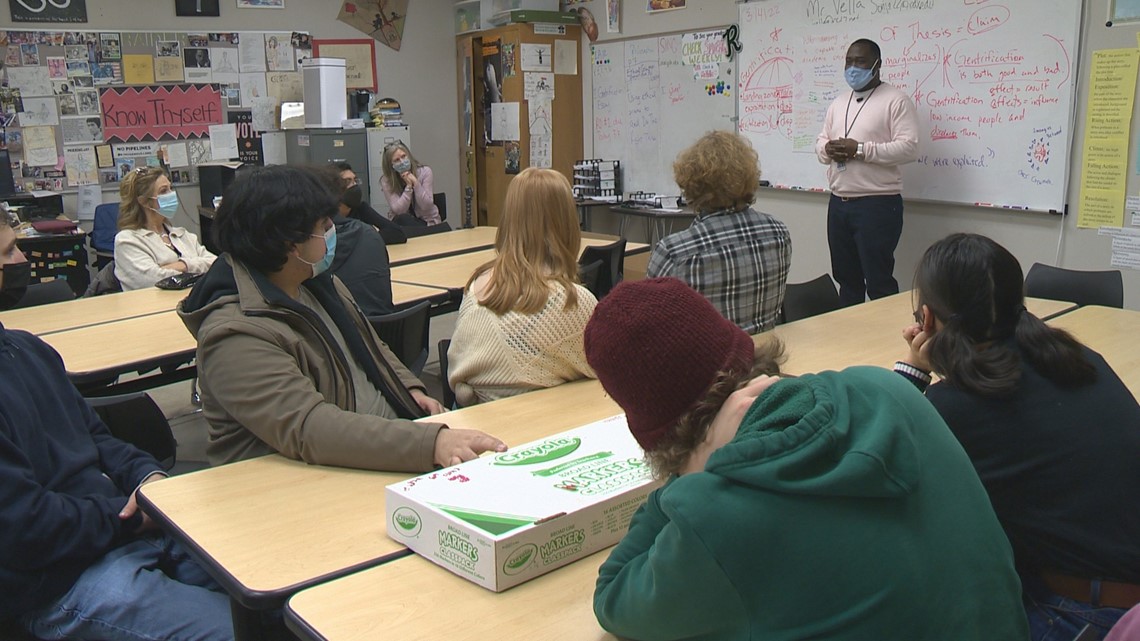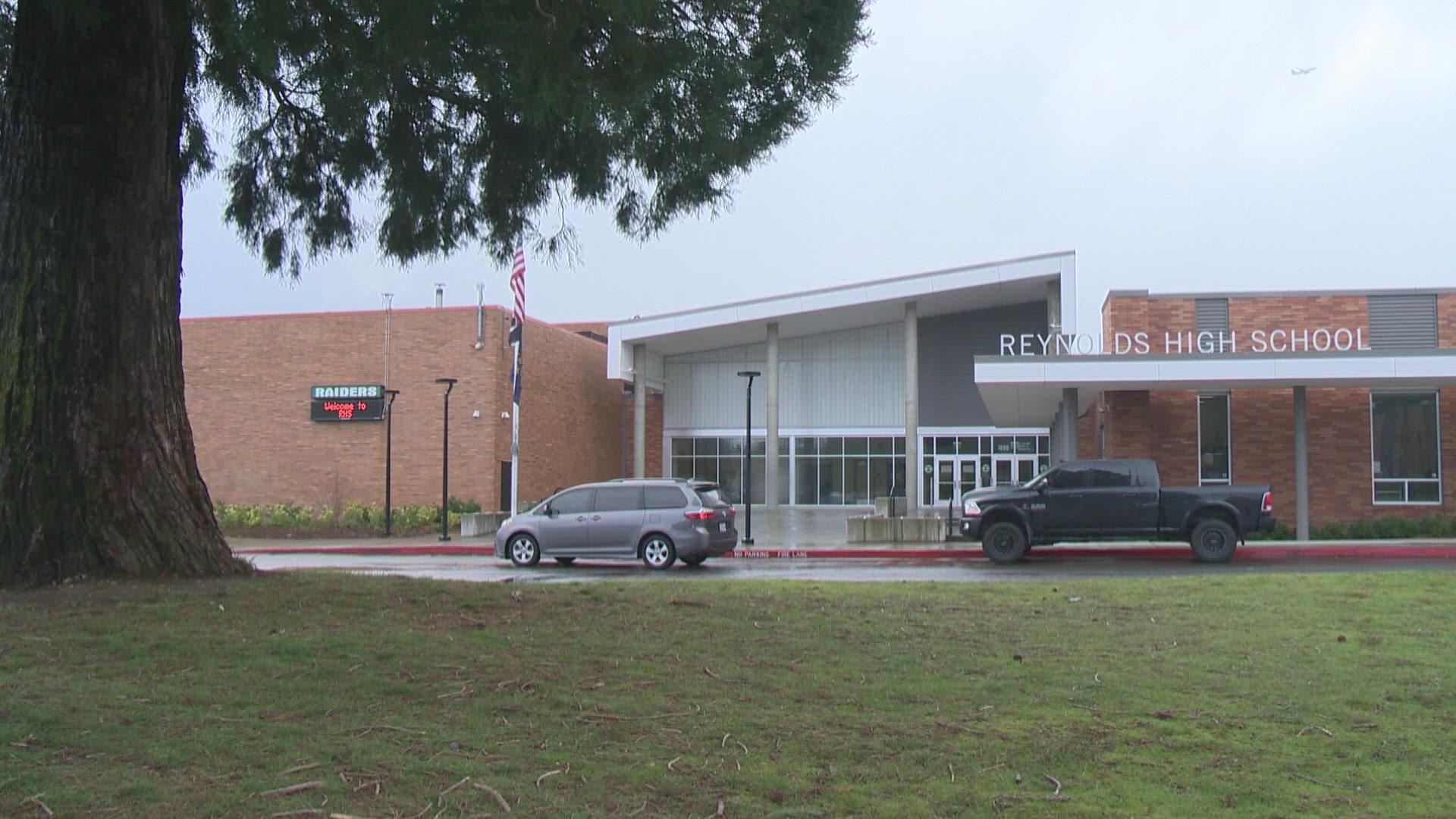TROUTDALE, Ore. — Seniors in a class offered by Portland State University at Reynolds High School in Troutdale are getting ready for what’s next.
On March 4, guest speaker Darryl Robinson was the teacher in Senior Inquiry class. Robinson served 10 years in a New York prison for robbery, and before he got out in 2018, he decided the label “ex-felon” would not be the period to his sentence.
“I was blessed with opportunity where education even showed me for the things that I need to change,” he said.
Robinson graduated from Bard College in 2015 with an anthropology degree thanks to the Bard Prison Initiative, where incarcerated people have the opportunity to take rigorous college courses. Portland State has a similar program.
“They're really a leader in this work and model that we have much respect for and have tried to follow and replicate here at PSU,” said Deb Arthur, director of the PSU Higher Ed in Prison Program. Arthur is a former criminal defense lawyer.
“It's more than just a nice thing to offer them,” she said. “These are going to be changemakers. There's brilliant folks inside and we cannot write them off.”


The PSU program is in its third year. It just received $120,000 to help incarcerated students access Pell grants.
“We're developing a degree pathway in liberal studies for students at Coffee Creek Correctional Facility, which is Oregon's only Prison for Women. We have about 75 students and we've offered 16 courses so far,” Arthur said.
Robinson’s college opportunity behind bars included being part of a debate team which competed against and beat a team Harvard. “That moment,” he said, “was a culmination for us of proof that we belong in society.”
The students at Reynolds got to share in Robinson’s experience and that of others by watching clips of the Emmy-nominated documentary “College Behind Bars,” which follows Bard students.
“This is the work that we should be doing,” said Arthur. “It's just a thrill to work closely with the folks at Bard to try to build upon what they're doing here at PSU.”
Arthur said reducing recidivism is a huge byproduct, but the key is giving access to brilliant minds in need of a chance.
“I'm going to be a student for the rest of my life. If I could afford it,” laughed Robinson, who started a program for at-risk and underserved juveniles to keep them on the right path. “I fell in love with education.”

